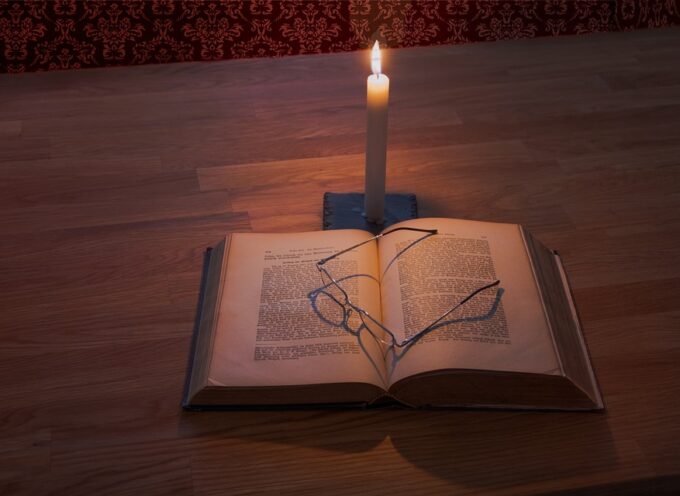In the first installment of this two-part series, we explored the first part of the Serenity Prayer with an eye toward learning to live without anxiety. After all, Jesus exhorted us, “Do not be anxious about your life, what you will eat or what you will drink, nor about your body, what you will put on…. Which of you by being anxious can add a single hour to his span of life?” (Mt 6:26-27). Similarly, Paul instructed us, “Do not be anxious about anything, but in every situation, by prayer and petition, with thanksgiving, present your requests to God” (Phil 4:6).
So, Jesus and the biblical writers exhorted us to cast aside anxiety. Yet, here lies the rub: How, practically speaking, can we begin to do so? In my experience, the first few lines of the Serenity Prayer can be used as a way to frame my day—and, by extension, life as a whole—such that I am able to cast aside anxiety. When I take these lines to heart, and pray them sincerely to God, I can move past the anxiety that has so often waylaid me in past years. I am able to gain peace by realizing that it does no good to worry about the many things beyond my control, and by gaining the courage to change the things that I can control.
Even if we were to stop here, with the first few lines of the Serenity Prayer, we would gain rich blessings. Yet, more blessings await if we soak ourselves in the truths offered in the remainder of the prayer. Thus, this post will explore the treasures of the longer version of the prayer.
Living one day at a time
The second portion of the serenity prayer urges us to live “one day at a time.” Why is this so significant? Because life can be managed and received gratefully only when lived one day at a time. This was Jesus’ point when he exhorts us not to worry about tomorrow because today’s worries are enough (Mt 6:34). We can plan for the future without worrying about the future. We can live in the moment, being thankful for what we have, doing the next right thing each day, and shedding the compulsion to worry about tomorrow.
Enjoying one moment at a time
When living “one day at a time,” we are finally liberated to enjoy one moment at a time. In other words, once we’ve determined to live fully in the day, one day at a time, we are finally free to enjoy the moments and hours within that day. We can discipline ourselves, to be here, now, living in gratefully in God’s presence, enjoying his gifts and being a conduit of his love to others. In so doing, we will experience a foretaste of God’s coming kingdom.
Accepting hardships as the pathway to peace
Some of our days will involve hardship, and the Serenity Prayer reminds us that hardships present a pathway to peace. There are a variety of ways to suffer hardship: physical, mental, emotional. In response to such hardship, our mind is predisposed toward solutions which can be unhelpful and often outright harmful. One misguided response is to conclude that we can’t be happy until the pain is gone. When we cannot respond properly to pain, we experience unredemptive (instead of redemptive) suffering which is the seed of neuroses. We might turn to alcohol, for example, as a self-prescribed medication. Or, we might try to control the people or circumstances that are causing pain.
Yet, instead of trying to get rid of the pain, we must move forward through the pain. God works through weakness and suffering. Consider the cross. Nothing, not even pain, can separate us from the love of Christ (Rom 8:35). Thus, we must accept the pain. In the midst of it, we can seek reasonable alleviation of it, avoid making other people suffer because of our own pain, choose to forgive the people who caused our pain, and refuse to overly identify with our pain (e.g. by playing the role of victim).
Taking, as He did, this sinful world as it is, not as I would have it
One of the most difficult challenges of life is to recognize the irreparable brokenness of the world we live in. Sometimes we experience that brokenness in intense ways, which trigger us to become cynical and untrusting. Yet, when we realize that this world will remain broken until Christ returns to set the world aright, we set the preconditions under which God can transform our response to reality. We allow him to remove from us any encroaching anxiety, resentment, and cynicism.
Trusting that he will make all things right
As we allow God to transform our response to the harsh realities of living in a broken world, we also are enabled to live with the joyful certainty that he will one day restore his good creation, making all things right. On that day, the brokenness of the world will be healed. We will be reconciled to God, to each other, and to the world around us.
If I surrender to His will
The joy we gain from living one day at a time, enjoying one moment at a time, and living in the joyful expectation of Christ’s return is contingent upon a daily surrender to God’s will (Mt 6:25-34). Philip St. Romain writes, “Surrendering to God’s will is about awakening to the reality of one’s own inner authority, which most people have lost. This inner authority is the place within where our spirit and God’s Spirit agree on a certain course of action. To invalidate this authority is a very serious matter” (72). As we surrender to his will, we continually open ourselves to the depth of happiness God offers.
That I may be reasonably happy in this life
Many of the things we said about serenity also apply to happiness. While a measure of happiness can stem merely from the fulfillment of desire, the deeper form of happiness stems from attuning our desires with God’s desires. Indeed, sin disorders our desires. Thus, in order to achieve true happiness—joy—we must ascribe ultimacy to God and seek to align our desires with his desires. In so doing, our joy will be completed by his joy (1 Pet 1:8-9).
And supremely happy with Him forever
When we tap into God’s consciousness and allow it to nourish and inform our own consciousness, we will experience a foretaste of the supreme happiness we will enjoy with him throughout eternity. We experience a small taste of that which, “no eye has seen, nor ear heard, nor the human heart conceived,” that which “God has prepared for those who love him” (1 Cor 2:9).
A Daily Ritual
For me, the recitation of the Serenity Prayer has been quite helpful. This should be unsurprising because I, as a human being, am defined by love and desire more deeply than by thinking. And because love is shaped by habits. Thus, I must take care to participate in the right habits. In light of this truth, and in recognition of the Serenity Prayer’s beautiful encapsulation of significant truths, I find it helpful to recite it, slowly, at least twice per day (morning and evening). Doing so helps me to “cast all [my] anxiety on Him because he cares for [me]” (1 Peter 5:7). I offer this habit for your consideration, in the hopes that it might serve as a soothing balm for your soul.
Subscribe
Never miss a post! Have all new posts delivered straight to your inbox.







